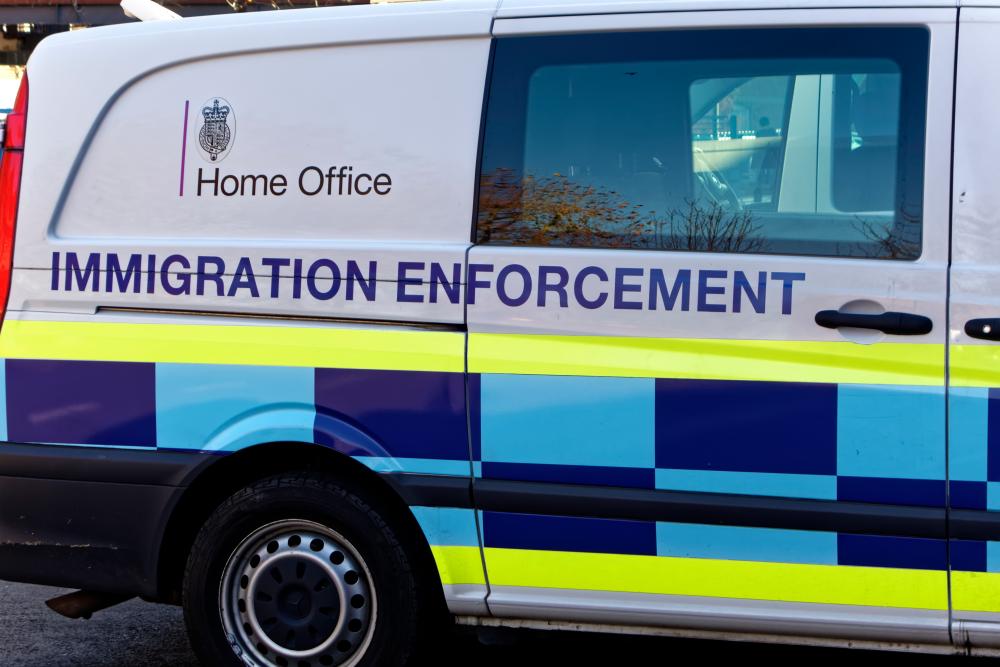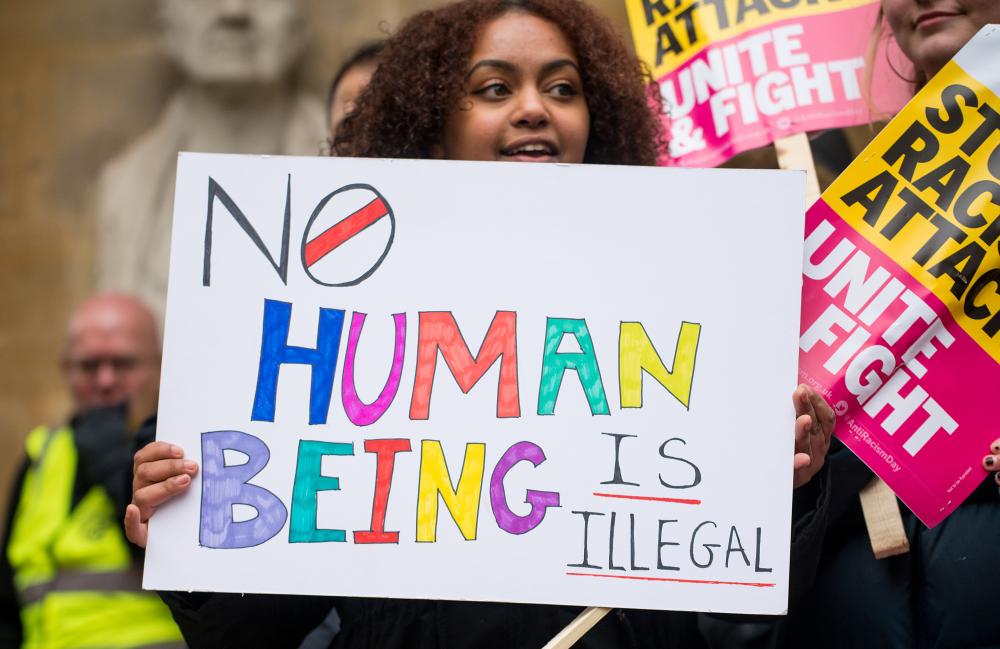OPINION: How Suella Braverman's fight to "stop the boats" breaches human rights


On Monday 1 June 2015, the newly elected Member of Parliament for Fareham gave her maiden speech to Parliament. In addition to thanking the MP for Islington North, one Jeremy Corbyn, “who gave an accomplished speech in the best traditions of this House.
I congratulate him”, she spoke of her father in moving terms:
"On a cold February morning in 1968, a young man, not yet 21, stepped off a plane at Heathrow airport, nervously folding away his one-way ticket from Kenya. He had no family, no friends and was clutching only his most valuable possession, his British passport. His homeland was in political turmoil. Kenya had kicked him out for being British. My father never returned. He made his life here in Britain, starting on the shop floor of a paint factory. My mother, recruited by the NHS in Mauritius as a girl of 18, passed her 45th year of service last year." Maiden speech by Suella Braverman.
The push for the Illegal Migration Bill
The MP was Suella Braverman, now Home Secretary. She is currently steering the Illegal Migration Bill in Parliament. It seeks to tackle the arrival of asylum seekers on small boats which launch from the beaches of Calais. The government wants to remove the right to claim asylum from people who arrive without the right of entry, whom they call “illegal”. The arrivals would be held in detention and then deported. The mischief that the Bill seeks to address is to deter people from paying smugglers who, the government contends, facilitate these dangerous journeys.
Braverman has also contended that it is a cost-saving measure designed to save the British taxpayer the millions spent on housing asylum seekers while their claims are processed, a slow and cumbersome process with long delays. It also aims to stop ‘queue jumpers’ who arrive undocumented when others have come via legal routes. Braverman is particularly concerned that many of the arrivals are single young men, seemingly ignoring the age at which her father arrived. What Braverman and the Bill do not address is the ease or difficulty of obtaining the legal right of entry. They do not address the UK’s international obligations, including The 1951 Refugee Convention and numerous other treaties, including The United Nations Convention on the Rights of the Child, 1989. In fairness, the Memorandum to the Bill acknowledges that it may not comply with the European Convention on Human Rights, 1951.
The British Empire and the post-colonial fight for citizenship
Braverman’s tearful recounting of her father’s migration story, which she recalled in a BBC 4 interview on Saturday, 11th March (Political Thinking with Nick Robinson - The Suella Braverman One - BBC Sounds) reminded me of a children’s book The Runaway Summer written by Nina Bawden and published in 1969. Bawden’s story was written in response to the passing, by a Labour government, of the 1968 Commonwealth Immigrants Act, which sought to limit what, in the day, was called “Coloured” migration in the interests of building community relations.
Bawden’s book is about a boy called Krishna Patel. Anticipating the change in the law, Krishna’s parents send him on ahead to live with his uncle in England. His flight from Nairobi to London is diverted to Paris due to engine problems. He cannot get a connecting flight to London as the flights are all fully booked with people who want to arrive before the change in immigration law comes into force. He is approached by men who offer him alternative passage to Britain, hence the arrival by boat. On arrival, the men run away, leaving the boy. Two children, Mary and Simon, who are playing on the beach, take Krishna under their wing. Krishna tells Mary and Simon that he wants to join his uncle in London. Simon, the son of a policeman, had raised the issue of Krishna’s legality before saying that, as Krishna was an “illegal immigrant”, he would be “put in prison if their papers are not right and then sent back where they came from” (N. Bawden, 1969, 59-60). He continues:
“He’s breaking the law…He’s an-illegal immigrant…". He goes on: “My father says there is no point in being sentimental…It’s just the law. People have to stick to the law.” The boy’s response reflects that of Braverman and the government. However, Mary’s aunt understands that the law has been passed to remove the rights of the dispossessed Krishna and others like him, leading her to note, “It’s disgraceful”, Aunt Alice said. “Going back on our word.”
East African Asians v. The United Kingdom
East African Asians who came were initially denied the rights that they had thought were guaranteed by virtue of belonging to the British Empire. Using the European Convention on Human Rights, 1951, a number of East African Asian applicants challenged the new law and the restrictions on travel. The case of East African Asians v. The United Kingdom, Application 4403/70, in which the European Commission of Human Rights found that the legislation was racially discriminatory and amounted to degrading treatment in violation of article 3 of the Convention, was brought to force the British government to allow them to remain.
Reading the case now and learning about the background negotiations in the government that led to the passing, in 1968, of the Commonwealth Immigrants Act, one is struck by how the “migrant swamp panic” of yesteryear is echoed in current discourse. It came as a shock to read that East African Asians were sometimes detained on arrival. A few were put in prison for short periods.
The post-millennial approach, in Britain and elsewhere, is to use detention centres for some asylum applicants and for those whose original claims have failed and who are in the process of appealing. In a Commonwealth Immigration Committee meeting, the Attorney-General in 1968 had tried to caution against passing the law, noting that the government’s proposals “did not spell out the difficulties which legislation of the kind proposed would entail for us in the context of a number of international instruments dealing with human rights and racial discrimination.” The Minister of State for Foreign Affairs had already warned of a breach of the “Universal Declaration of Human Rights, the Fourth Protocol of the ECHR (on expulsions) as well as customary international law.”
Pulling up legal bridges
In a lecture delivered in 2003, Lord Lester, who as a young lawyer successfully represented the East Asian Africans, warned that the same mistake could be made:
“What was done to British citizens of Asian descent in 1968 is not a remote chapter of history. In times of populist hysteria, racism and xenophobia, it could happen again if a future Government decided to deprive some other vulnerable minority of their common humanity and their basic rights and freedoms.”
We are at that point now. It may be time for the Home Secretary to reflect on what her father gained and to want for the recent arrivals that which was given to him:
"My family had nothing but hopes and dedication. They were so proud to be British and so proud to make our country even better. If I succeed in making some small contribution during my time in this place, it will reflect only a fraction of my gratitude to this country for the abundance of education, culture and traditions that have made Britain great, for the tolerance and fellowship of the British people, and for the opportunity and liberty that we all enjoy."
*I would like to thank Professor Lutz Oette for his help with this piece.


